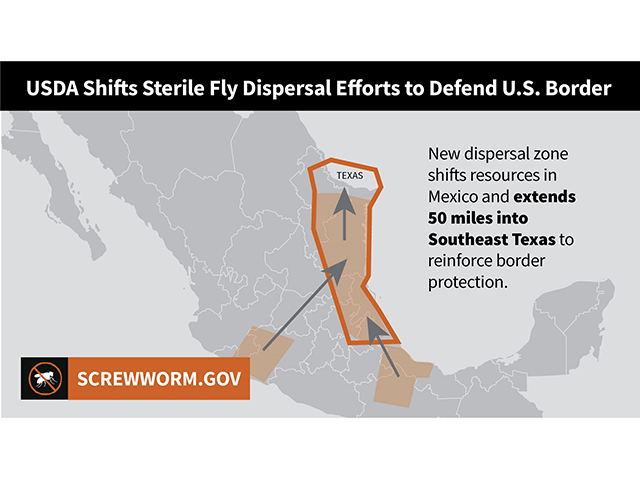Rivalries Could Halt OPEC Deal
VIENNA (AP) -- Up to this week, chances that OPEC countries would agree to their first cut in output in eight years were looking good. Now, not so much.
Saud Arabia is questioning an informal agreement made in September to trim production. And the desert kingdom, which accounts for about a third of OPEC's output, normally prevails at ministerial meetings.
Whether OPEC decides to cut or not at their meeting Wednesday will influence energy prices around the world as the cartel remains the dominant force in oil markets. The price of crude fell almost 4 percent Tuesday as it appeared uncertain that a cut might be agreed upon.
Still, a deal is not out of the question, and even a remote possibility that it will be backed is an exciting prospect. Spencer Welch, an analyst with IHS energy, casts the event as "potentially the most important OPEC meeting since 1973," when the cartel imposed a highly effective oil embargo on the West.
Those days of OPEC unity have been replaced by infighting and rivalries that have tarnished the cartel's image and crippled its ability to set world prices and supplies.
Instead of cutbacks, Saudi oil minister Khalid Al-Falih says the Organization of the Petroleum Exporting Countries should do no more than what it has done for nearly a decade — sit back and let demand drive up prices "without an intervention from OPEC."
He told reporters that the Vienna meeting is wide open, declaring: "We don't have a single path, which is to cut production."
P[L1] D[0x0] M[300x250] OOP[F] ADUNIT[] T[]
The Saudi stance raises chances not only of yet another inconclusive meeting. It also refocuses the spotlight on the battle for influence between the Saudis and Iran.
Once second only to Saudi Arabia in production within OPEC, Iran chafed for years under sanctions that crimped its oil sales while watching its rival increase its output. With sanctions lifted this year as a result of a nuclear agreement, Iran is looking to regain its market share within OPEC while pushing the Saudis to give up gains it says were made while Tehran was sanctioned.
Al-Falih may be hoping that his apparent about-turn on output cuts will pressure Iran and other members to be more open to reducing their own production instead of waiting for the Saudis to go it alone. And at least one important member appears to be listening.
Iraqi Prime Minister Haider al-Abadi told The Associated Press that his country is ready to pare back output as part of an overall OPEC decrease of 900,000 to 1.2 million barrels per day. That would be cut of between 2.7 percent and 3.6 percent from October levels.
But Tehran insists the onus is on the Saudis. Alluding to its Mideast rival, Iranian oil minister Bijan Zanganeh said that OPEC members that had increased production "dramatically ... should naturally accept more responsibility for decreasing production."
Iran's semi-official Mehr news agency opted for tougher language, accusing the Saudis of waging a "full-blown psychological war" against other members after having "seized share of other OPEC manufacturers".
The Saudis, said Mehr, want to "maintain the highest production capacity while ignoring interests of other members."
The dispute over which country cuts by how much appeared unresolved Tuesday evening with United Arab Emirates' oil minister Suhail Mohamed Al Mazrouei saying that "the biggest barrier is that some are not participating."
Russia and other major non-OPEC producers had signaled readiness to cooperate after the September meeting. But after Saudi Arabia stayed away from technical pre-meeting talks on Monday, Russia also declined to join. Now, with the internal OPEC dispute brewing, Russia and other oil producers outside the cartel are waiting to see how the ministers' meeting plays out.
Even a full OPEC cut will not restore crude prices to the levels over $100 that a barrel fetched in June of 2014, before increased output from the U.S. and other non-OPEC countries led to oversupply.
OPEC then opted to pump at high volumes instead of throttling production, in an attempt to maintain market share and drive U.S. shale oil and gas producers with higher operating costs, out of business.
Crude prices plunged as a result. In January, they fell below $30 a barrel for the first time in over a decade before rising to levels now that are still less than half of their mid-2014 peak. On Tuesday, the U.S. benchmark was $1.65, or 3.5 percent, lower at $45.43 a barrel.
Among the oil nations most hurt by the price drops are OPEC members Venezuela and Nigeria, but also Russia and Brazil. So both producers in and outside the cartel have an incentive to work on reducing output, even if Wednesday's meeting fails to do so.
Still, with the market oversupplied and the world economy struggling somewhat, any price benefits for Russia and OPEC nations are expected to be short-lived. President-elect Donald Trump has promised to reduce restrictions on shale oil, which would further increase global supply.
And even if there is agreement to cut output, there is no guarantee individual members will honor commitments. They have regularly pumped more crude than their allotted quota in the past.
"The same obstacles toward a deal remain," said energy consultants Wood Mackenzie in a research note: "A reluctance on the part of key producers to cut production and lose market share."
(KA)



